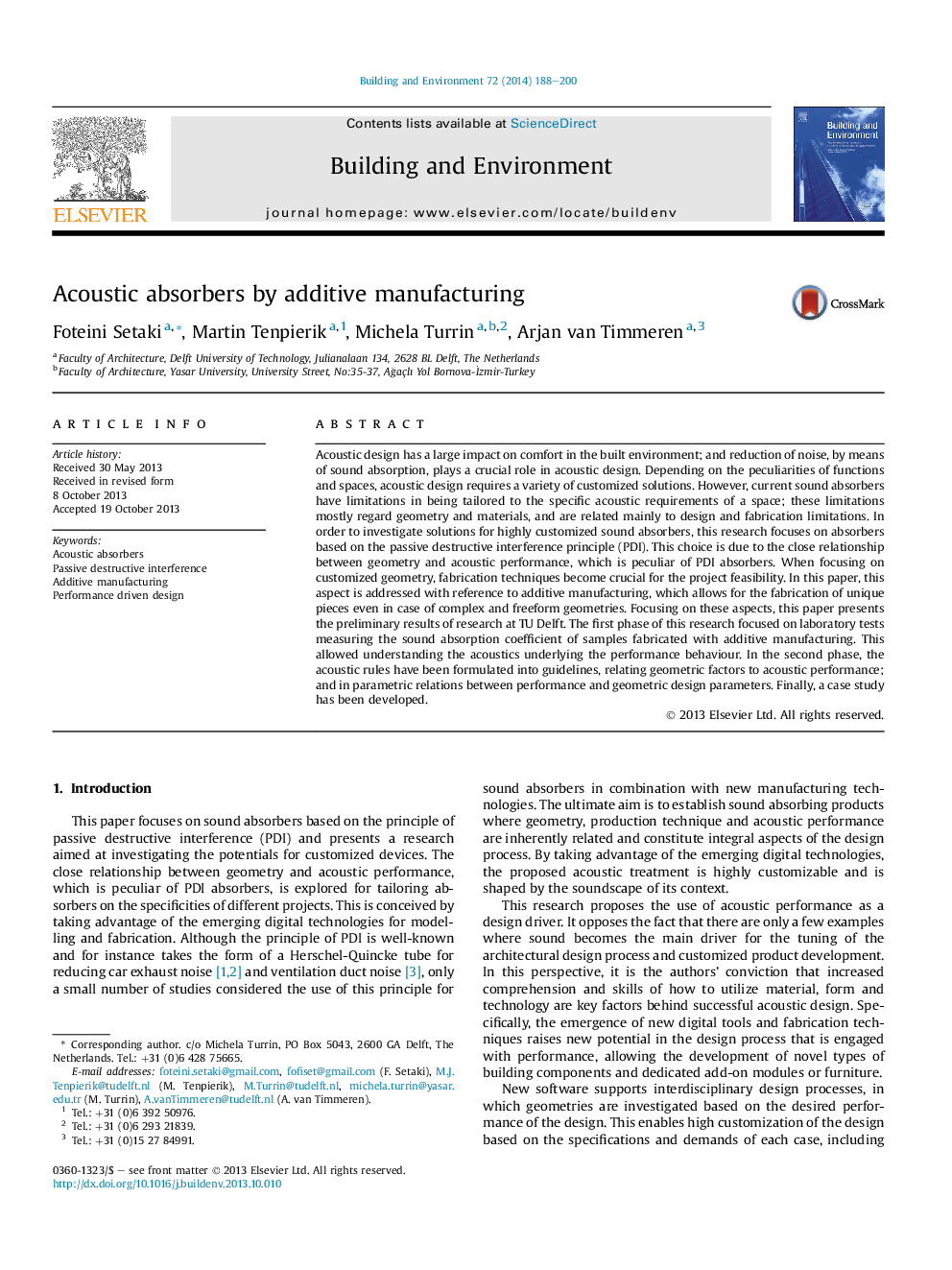| Article ID | Journal | Published Year | Pages | File Type |
|---|---|---|---|---|
| 6700584 | Building and Environment | 2014 | 13 Pages |
Abstract
Acoustic design has a large impact on comfort in the built environment; and reduction of noise, by means of sound absorption, plays a crucial role in acoustic design. Depending on the peculiarities of functions and spaces, acoustic design requires a variety of customized solutions. However, current sound absorbers have limitations in being tailored to the specific acoustic requirements of a space; these limitations mostly regard geometry and materials, and are related mainly to design and fabrication limitations. In order to investigate solutions for highly customized sound absorbers, this research focuses on absorbers based on the passive destructive interference principle (PDI). This choice is due to the close relationship between geometry and acoustic performance, which is peculiar of PDI absorbers. When focusing on customized geometry, fabrication techniques become crucial for the project feasibility. In this paper, this aspect is addressed with reference to additive manufacturing, which allows for the fabrication of unique pieces even in case of complex and freeform geometries. Focusing on these aspects, this paper presents the preliminary results of research at TU Delft. The first phase of this research focused on laboratory tests measuring the sound absorption coefficient of samples fabricated with additive manufacturing. This allowed understanding the acoustics underlying the performance behaviour. In the second phase, the acoustic rules have been formulated into guidelines, relating geometric factors to acoustic performance; and in parametric relations between performance and geometric design parameters. Finally, a case study has been developed.
Keywords
Related Topics
Physical Sciences and Engineering
Energy
Renewable Energy, Sustainability and the Environment
Authors
Foteini Setaki, Martin Tenpierik, Michela Turrin, Arjan van Timmeren,
